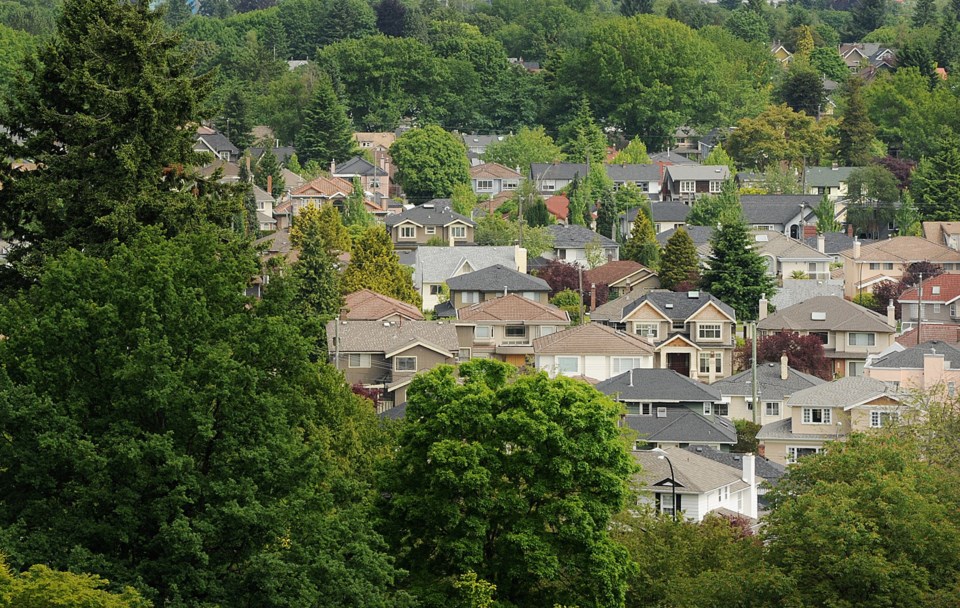More than 180,000 Vancouver residential property owners will begin receiving instructions in the mail over the next month on how to determine whether their homes are required to pay the city’s new “empty homes tax.”
Mayor Gregor Robertson and Patrice Impey, the city’s general manager of financial services, held a news conference at city hall Tuesday to remind homeowners of the need to declare the status of their properties before Feb. 2, 2018.
“Almost all homeowners in Vancouver will not be affected by the empty homes tax because people live in their homes,” Robertson said. “But we know that there are thousands, anyway, that are sitting empty now.”
The city’s best estimate is about 25,000 Vancouver homes are either empty or only occupied for part of the year. Homeowners not subject to the tax are those whose homes are their principal residence, are rented for at least six months of the year or qualify for an exemption under eight categories outlined by the city, including renovation of a home.
Robertson said the city will assume those homeowners who don’t declare their property status by Feb. 2 have left their homes empty and will be subject to the tax. Those homeowners must pay a tax calculated at a rate of one per cent on the property’s 2017 assessed taxable value. A $250 fine will also be levied.
If a homeowner fails to properly declare, that person could be subject to a fine of $10,000 per day until the bill is paid, said Impey, who noted there will be an “audit process” to investigate those people who lie about their property’s status.
Impey said that process includes doing random sampling of empty homes tax declarations and targeting specific homeowners. The city has consulted with Canada Revenue Agency on developing its strategy, she added.
Robertson said the goal of the tax is to pressure homeowners with empty homes to open them up to renters. With a less than one per cent rental vacancy rate, the mayor said the tax provides the city with another tool to increase the supply of rental homes.
“This is an incentive to get people renting their homes, if they’re not using them,” said the mayor, arguing homes shouldn’t be used as “a commodity.”
Robertson noted the city will receive an update at the end of the month from the Canada Mortgage and Housing Corporation on what the vacancy rate is in Vancouver. If that rate increases, that could be an indication that more homeowners are beginning to rent their homes.
The $7.5-million cost to implement the empty homes tax program, which increased from an earlier estimate of $4.7 million, covers the first three years. Operating costs are estimated at $1.5 million per year.
The costs are largely related to creating a new department, which involves upgrading the city’s website and 311 services, hiring new staff and ongoing education and mailouts to residents. Impey has said the city expects to recover the $7.5 million in the first year of collecting the tax. The collection of a one per cent tax on 750 homes would pay it off.
mhowell@vancourier.com



